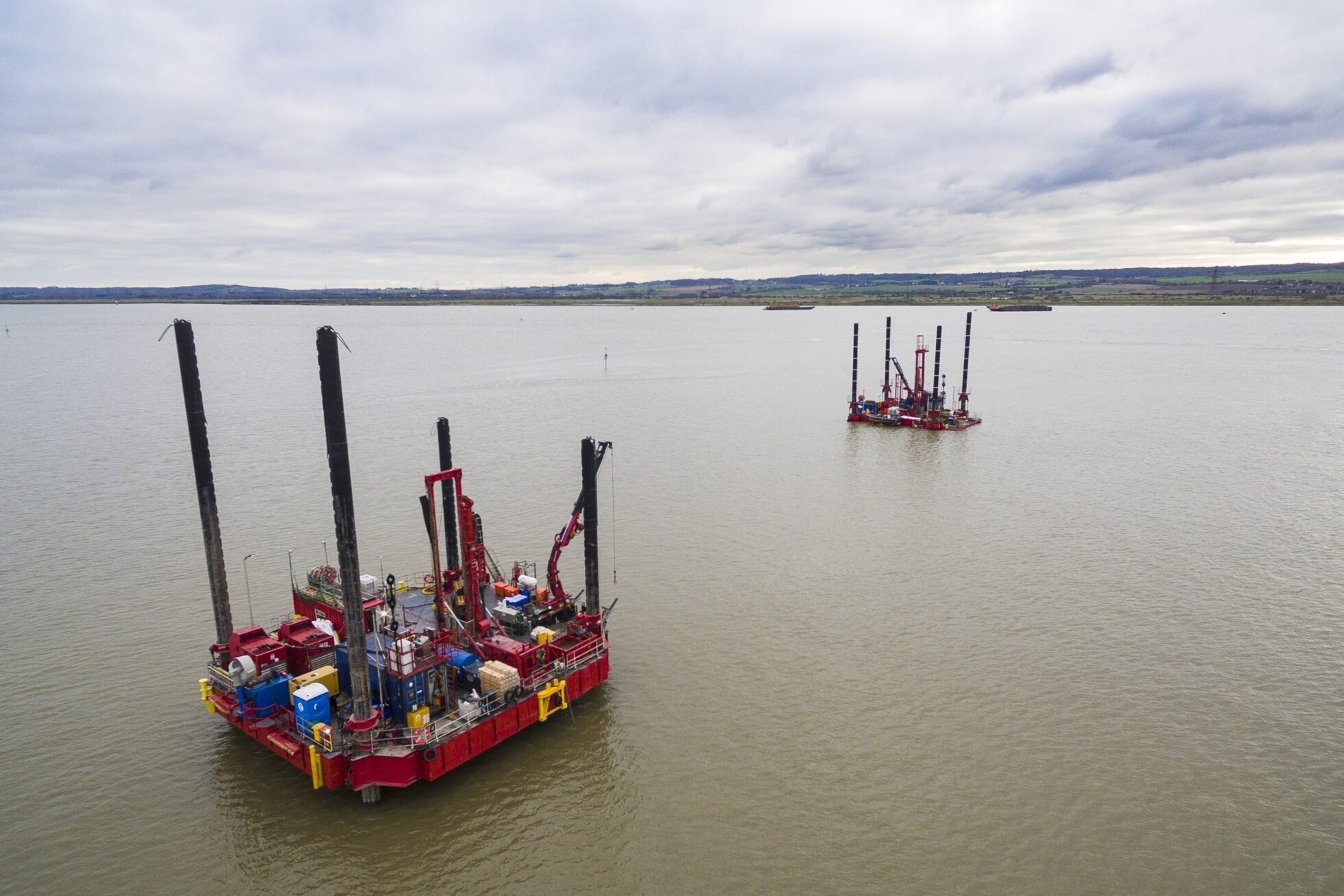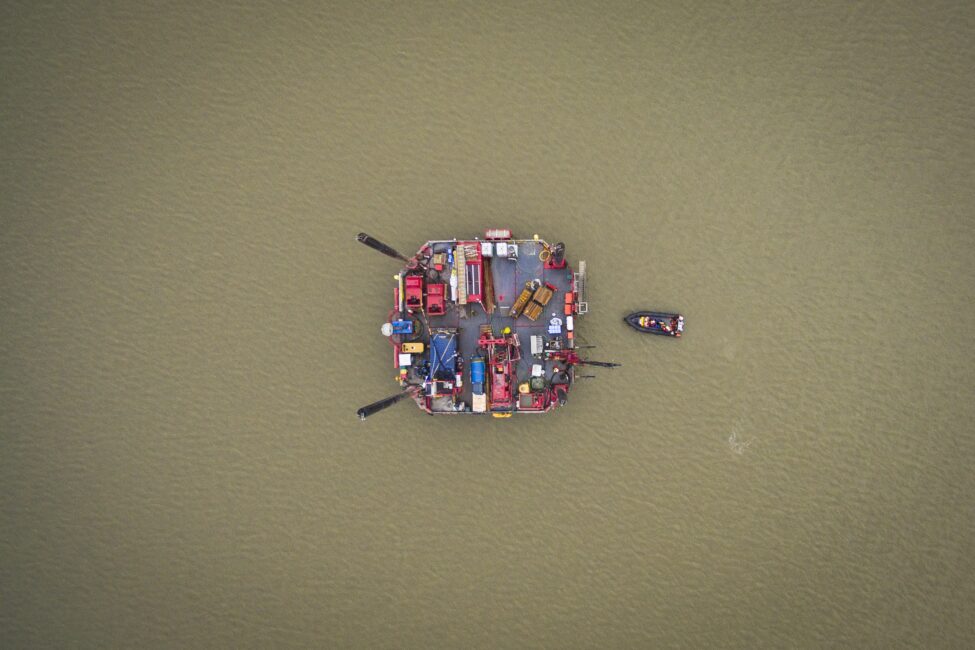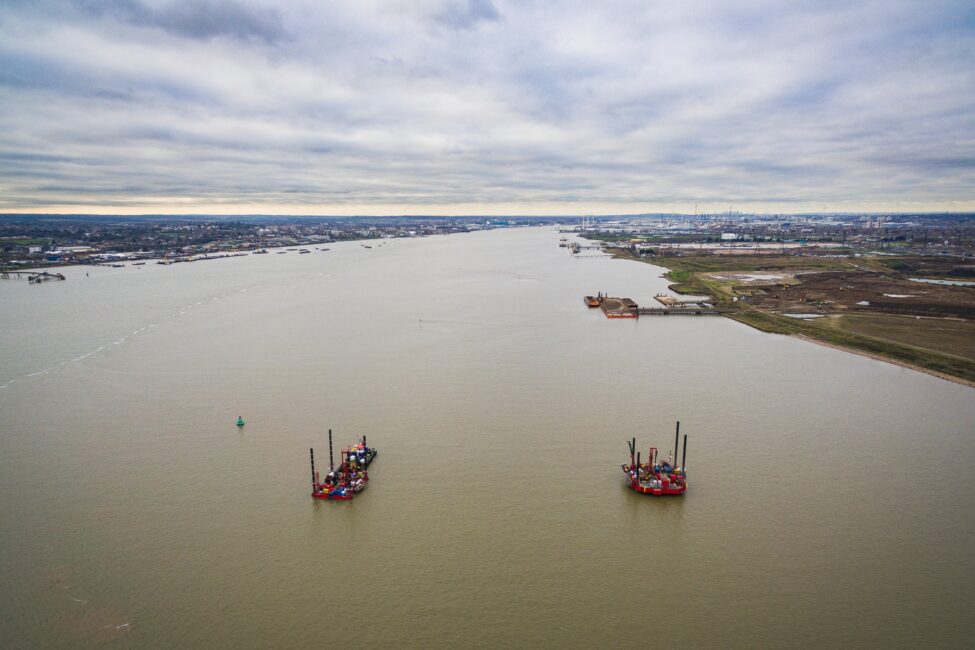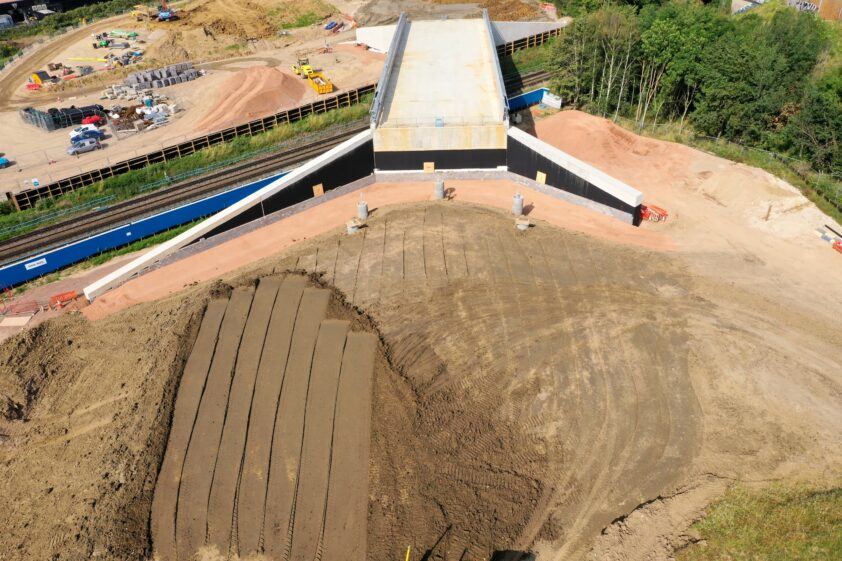Lower Thames Crossing, Ground Investigations, South East England

Sector
Infrastructure
Value
Confidential
Status
In progress
Delivery teams
AECOM, Geotechnical
Background
The 14.5-mile route of the planned Lower Thames Crossing is one of the government’s top 40 infrastructure projects in its National Infrastructure Plan.
It will increase connectivity across the Thames Estuary, reduce congestion and improve journey times along parts of the A127 and M20 by increasing road capacity, and boost the economy of the region and beyond.
Requirements
Highways England procured Perfect Circle via Scape Group’s Built Environment Consultancy Services (BECS) framework to deliver the extensive Ground Investigations (GI) for the project, acquiring data to support the consent and design development.
As the managing consultant and principal contractor, Perfect Circle is undertaking work at more than 700 individual locations in Kent and Essex to gather data on ground and groundwater conditions along the route.
The investigations include boreholes from jack-up barges at locations across the River Thames, obtaining data on areas close to where the proposed tunnel will be built.
The geology of the route is varied and includes Chalk and the full sequence of London geology formations, together with locally significant made ground (fill).
The GI will give Highways England a clearer picture of the type and properties and specific nature of the ground and groundwater along the planned route. The GI is vital information for the design of the scheme – and will help to build the crossing safely and in a way that helps to protect the environment.
Speed of appointment and the ability to interact with Perfect Circle’s technical specialists to find the most appropriate tailored solution for the GI were important factors for the client electing to use Scape’s BECS framework.
Delivered by Perfect Circle, the BECS framework is the most efficient route to market for public sector built environment projects and asset management, allowing direct award for commissioning multi-disciplinary services, with full public procurement compliance.

Challenges
An area of challenging work has been implementing investigations across the busy River Thames shipping channel to obtain critical data for design of what will be the UK’s largest ever tunnel.
Perfect Circle is working closely and in harmonious collaboration with its supply chain partners, sub-consultants, stakeholders, the client and its team to achieve the highest benchmarks in terms of health and safety and technical quality.
Using unrivalled knowledge of the industry, engaging widely with the GI market, identifying appropriately-qualified specialist suppliers, and working together collaboratively executing one of the largest programmes of its type in recent times have been important to success in overcoming the challenges.
As a large team is delivering the investigations, collaboration has been vital to the project, including extensive stakeholder liaison and local engagement to minimise the project’s impact on the environment and local communities.

Projected outcomes
The complex programme of GI is a vital step forward for the project and will provide Highways England with critical information on the ground conditions along the route to support planning and design.
The Lower Thames Crossing will improve transport connections across the country by providing more than 90% additional road capacity across the river in the east of London, while boosting the economy and creating thousands of new jobs, apprenticeships and training opportunities. This is an excellent example of delivering very tangible and inclusive social value.
The programme is expected to bring positive change through improved safety systems and digital management tools, which will create a lasting legacy from the client’s investment in the work.
The new crossing will boost local, regional and national economies, and form an essential part of the UK’s transport infrastructure.
"Without the collaborative approach and without the efforts of the hundreds and thousands of people who have worked on the project, it simply wouldn't have been possible to deliver the works over two counties and several hundreds exploratory conditions over the course of less than one year."
Ben Green | Head of Ground Investigation Delivery

